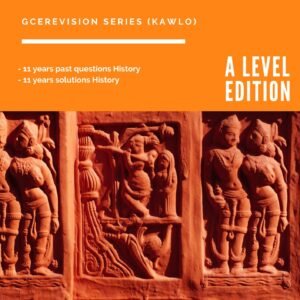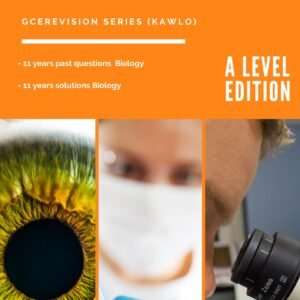Cameroon GCE advanced level June 2025 English language 3 new syllabus
Cameroon GCE advanced level June 2025 English language 3 new syllabus
Duration: Two and a Quarter Hours
INSTRUCTIONS TO CANDIDATES
ALL THE QUESTIONS ARE COMPULSORY. THEY CARRY EQUAL MARKS.
Read all instructions on BOTH the question paper and the answer booklet very carefully. Failure to
obey these instructions or to number your work as on the question paper will cause you to lose marks.
Any unusual mark, sign or unnecessary disclosure of your identity will be considered as an attempt to
cheat and will earn you a penalty.
In the SUMMARY WRITING question, use mainly your own words. Indiscriminate copying of
portions of the passage as your answer will earn you no marks.
You are reminded of the necessity for good English and orderly presentation in your answers.
SECTION A
SUMMARY WRITING (15 MARKS)
Read the following passage on artificial intelligence and summarise it in two paragraphs of not more than
150 words, using your own words as far as possible.
Artificial intelligence is a technology that allows machines to execute tasks that have traditionally required
human cognition. Al–powered programmes and devices can make decisions, solve problems, understand and
mimic natural language and learn from unstructured data. Seemingly poised to become as ubiquitous as email,
this rapidly evolving technology is transforming many aspects of daily life—including how we teach and
learn.
Al‘s most significant contribution to education is perhaps its ability to provide individualized learning
experiences. Platforms like Carnegie Learning use AI to adapt to each student’s learning pace, offering tailored
challenges and support. This personalization ensures that students who struggle with certain topics receive the
attention they need, while those who excel can move ahead at their own pace.
Students from disadvantaged backgrounds may not have the same access to technology, further widening the
gap between them and their peers. The deployment of AI in classrooms can also exacerbate the digital divide.
According to a report by the Australian Council for Educational Research, “There is a real risk that AI could
deepen existing educational inequalities if not implemented with careful consideration of equity and access
issues.
Al–driven language translation tools and adaptive learning software make educational content accessible to
students regardless of language barriers or learning disabilities. AI is a powerful tool in promoting inclusive
education and universal access. AI systems are available 24/7, offering personalized help with homework,
explaining difficult concepts, and answering questions. As AI systems take on more roles traditionally filled
by educators, there is a fear that teachers may become obsolete. Automated grading, Al–driven tutoring, and
administrative tasks handled by AI could reduce the need for human teachers, leading to job losses and a
devaluation of the teaching profession.
Al–driven language translation tools can break down communication barriers, enabling students and educators
from different countries or with different languages to collaborate on projects and learn from one another. An
AI homework helper might churn out solutions to complex math problems in seconds. However, this deprives
students of the opportunity to grapple with the problem themselves, develop logical reasoning skills, and
experience the satisfaction of arriving at a solution independently. Overdep^ndence on AI for problem–solving
can hinder students’ ability to develop critical thinking skills and develop independent learning skills.
AI systems often require vast amounts of personal data to function effectively, including students’ academic
records, behavioural data and even biometric information. This extensive data collection raises significant
concerns about how this information is stored, used and protected. Inadequate safeguards can lead to data
breaches, exposing sensitive student information to unauthorized parties and potentially resulting in identity
theft or other forms of misuse.















